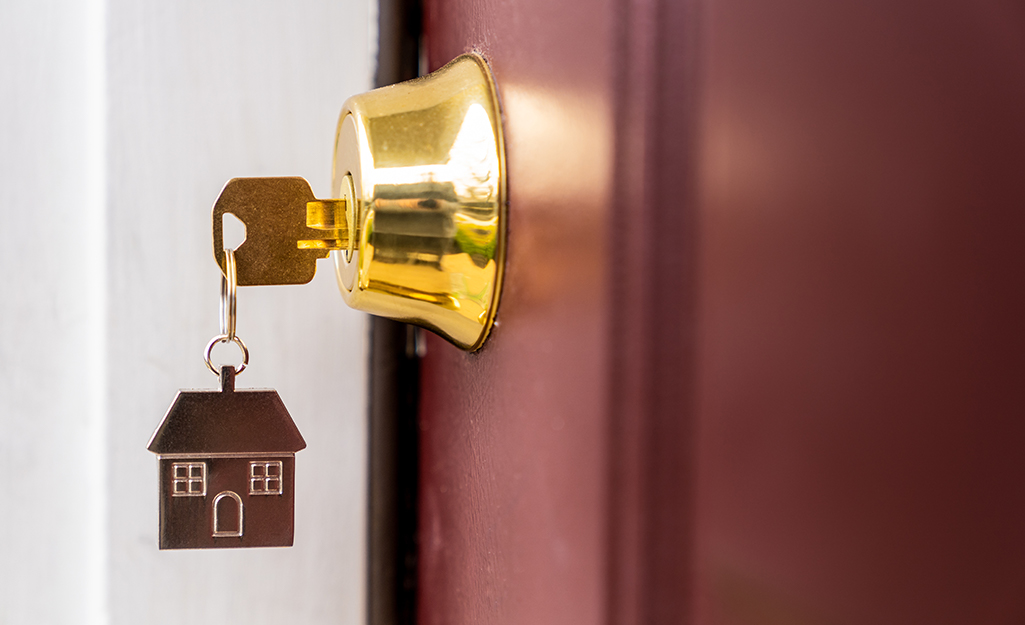When it comes time for new guests to arrive at your Airbnb rental, one of the first impressions you will create is by how you greet them. As a result, a simple Airbnb key exchange procedure may be more important than you realize.
There are several ways for arranging a smooth and effective Airbnb key transfer. Continue reading to learn about the advantages and disadvantages of each, as well as how to pick the one that is most suited to your requirements and those of your target guests.
The Role of Airbnb Key Exchanges in the Check-in Process
When it comes to check-in, a well-planned key exchange solution will make the procedure easier for both you and your visitor. Consider these advantages of a well-planned critical handover:
- Travelers who are tired will not have to wait for you to check into your hotel. They will be able to select the time that is most convenient for them and will not be restricted by the schedule of others.
- You will not have to wait for each individual to arrive. Instead, you may utilize this time to complete other critical hosting activities on your to-do list.
- It will also provide you peace of mind that your visitor will be able to enter the premises without you having to live nearby or be accessible to hand over the keys 24 hours a day, seven days a week.
There are several solutions available to meet your specific requirements. Here are some of our top suggestions for making your Airbnb guests’ arrival as easy as possible.
Easy Ways to Exchange Airbnb Keys
Various ways for handing over keys will appeal to various hosting styles and situations. Some hosts may prefer more conventional methods, while others may choose to use an automated system.
Similarly, individual hosts and property managers may choose a certain choice to meet a specific need or limitation. Some people are looking for the most cost-effective key exchange option, while others are more concerned with time efficiency or security.
Options for Key Exchange in the Past
The most common technique to organize an Airbnb key exchange is to enlist the help of another individual. It may be someone you know or someone you work with. These approaches need open lines of communication between all parties concerned.
Because the person you choose will actually hold the key to an excellent welcome, you’ll need to create connections and trust with them to make it all work.
1. Putting Your Trust in Your Cleaner
Whether you already have a cleaner on staff, it’s a logical step to inquire if they’d be willing to remain long enough to give over the keys.
You may schedule your cleaner’s shift a few hours before the scheduled arrival time, so they don’t have to wait long after they finish their cleaning duties.
Pros
- This is also a cost-effective choice; just give your cleaner a little higher price in addition to their regular cleaning rates.
- Your cleaner will be acquainted with your home and be able to show your visitors around.
Cons
- Your cleaner may be busy cleaning other homes and may not be able to wait for lengthy periods of time if a visitor is late.
- If your cleaner needs to organize themselves around each individual arrival time, their schedule may become irregular and difficult to manage.
- You also incur the danger of someone showing up early when your cleaner is still in the middle of cleaning. This would not be a professional appearance.
2. Relying on a Friend or Neighbor
One of the simplest alternatives is to ask a neighbor or friend who lives near your Airbnb to retain a set of keys and oversee the transfer.
You’ll need to coordinate an arrival time with your visitor and let your buddy or neighbor know about it. Your visitor will then arrive at the agreed-upon time to be greeted.
Pros
- This is one of the most cost-effective choices. If you have the finest neighbors on the planet, they may not want anything in return (although we recommend giving them a small gift to say thank you).
- A pleasant, in-person welcome from a friend or neighbor is possible.
- They will live nearby, removing any big travel obstacles.
- You’ll rest easy knowing that your keys are secure in the hands of someone you know and trust.
Cons
- Your neighbor or friend will not be accessible 24 hours a day, 7 days a week. They could have other commitments and won’t be pleased if they have to allow your friend in late at night.
- When your Airbnb has a busy season, they may get bored of having to greet guests many times every month.
- To encourage your visitors to come on time and not keep your neighbor or friend waiting, you may need to impose a late charge.
3. Using a Third-Party Manager’s Services
Professional property management firms will essentially handle your Airbnb on your behalf. It’s a high-end all-in-one service that allows you to sit back and relax while they take care of all management-related responsibilities, from the welcome procedure to cleaning management.
Property managers are ideal for people who would rather delegate management of their company to someone else, even if it means making less money at the end of the day.
Pros
- There are no issues with swapping keys. All communication will be handled by third-party managers, who will also coordinate the check-in and enable the key exchange.
- They will be able to give a professional greeting service and will always be present to greet and tour visitors around when they arrive.
- In between bookings, your keys will always be kept secure.
Cons
- This is one of the more expensive alternatives. A third-party management business may charge up to 40% of your monthly rental revenue since you will get complete premium service.
4. Working with an Airbnb Key Holder who is a professional.
A professional key exchange service may be provided by hiring a key holder, often known as a greeter. They will meet your visitors, pass over the keys, and greet them warmly at the start of their stay for a charge.
Pros
- Because this is the job of the key holder, you can count on them to greet your Airbnb visitors on schedule and with a friendly welcome.
- They’ll have a little more leeway to accommodate people who are running late.
Cons
- Due to the fact that this is a professional service, you can anticipate paying a hefty charge for this arrangement.
- Professional Airbnb key holders don’t always reside near your home or apartment, and they may not be in the neighborhood unless it’s expressly planned. You’ll need a backup plan in case there’s a misunderstanding about arrival schedules.
5. Coordinating with a nearby coffee shop
It would be handy to swap keys in a coffee shop, or other retailers or restaurants. They will, of course, be accessible during business hours, and customers will be able to pick up the keys by meeting the shop owners or personnel at the facility.
When choosing a shop, consider which locations are the nearest to your lodging, ideally within walking distance. Choose a smaller shop where you may form bonds with the workers and the owner. Also, make sure you ask the business owner for permission to leave your keys with them and that you tell them well in advance of your arrival time.
A fantastic personal touch might be to purchase a sandwich or coffee for your visitors at the shop of your choice as a way to provide an extra warm welcome.
Pros
- The shop will be open for most of the day, and some may even be open 24 hours a day.
- You may only need to offer the owners and employees a thank you present once in a while if you choose this option.
Why You’ll be promoting a local company since customers are likely to return to the shop throughout their stay.
- The personnel will be used to providing polite service.
Cons
- If you don’t have a backup plan in place and your visitors come after closure and the owner doesn’t live nearby, they may be left without a method to get inside the premises.
- Having various members of the staff have access to your home keys poses a security issue, particularly
- Coordinating with the Front Desk Manager
If your Airbnb is in an apartment or a gated neighborhood, there’s a good possibility the building or complex has a front desk administrator. You may be allowed to leave the keys at the front desk for your visitors to pick up when they arrive and drop them off when they depart if you have a strong connection with the management.
Pros
- The administrator will be accessible for most of the day. Some front desks are even open 24 hours a day, seven days a week. This allows your visitors to choose their own schedule and avoid feeling hurried to meet a specified time.
- Because the administrator will not charge a professional fee, this is another cost-effective option. All that is required is a frequent show of gratitude, such as money or a modest gift.
- You can rest easy knowing that your keys are safe and secure throughout your stay.
- While on duty, the front desk administrator will always be near your unit.
Cons
- You’ll need to put in place protections, such as a secret password to provide the front desk, to guarantee that no outsiders who haven’t booked a stay at your house attempt to get the keys.
- Because the administrator is unlikely to be able to guide visitors to your door, make sure you provide clear check-in information.
if they also know your address.
Solutions for Automated Key Exchange
Technology advancements have spawned a new generation of automatic key exchange systems. They’re simple to set up and administer, and they generally cost a fraction of what professional services would.
These choices don’t need the assistance of others, allowing for self-check-in. They’re also more secure than conventional approaches in many cases.
7. A Safety Deposit Box
The inconspicuous lockbox – a tiny, robust, and safe storage container expressly intended to lock your keys securely within — is a simple but efficient solution. Lockboxes have a security combination that may be used to open them. You would only have to convey the right lockbox combination before arrival.
Lockboxes are available with a variety of mechanisms, including a push-button, wheel, and dial. The Igloohome Smart Keybox 3, the Master Lock 5424D Portable Lock Box, and the Kingsley Guard-a-Key Black Realtor’s Lockbox are all popular lockboxes.
Pros
- There’s no need to have someone greet your visitors; all they’ll need is the combination to the lockbox.
- Because lockboxes are a one-time purchase, they are a very cost-effective alternative in the long run.
- They are available 24 hours a day, seven days a week.
- They may be put on the premises to provide for simple access.
Cons
- If you give your visitors the wrong combination, they may get trapped and require your assistance.
- If you don’t update your password often enough, it might be exposed, resulting in unwelcome guests showing up at your Airbnb.
8. A Smart Lock
Consider a digital version of a lockbox. There is no need to pass over a key while using a smart lock. When a passcode is entered, your door will open, and you have total control over the code.
The software is controlled through the company’s website or mobile app. You may use a computer or a smartphone to activate and update the passcodes online. August Smart Lock Pro and Yale Assure Lock SL are two of the most popular smart locks.
Pros
- There is no requirement for someone else to be available for your guest’s arrival.
- Your visitors may check-in anytime they want, 24 hours a day, 7 days a week.
- One of the most secure alternatives is the opportunity to update your code as frequently as you like.
Cons
- This is one of the most expensive automated alternatives available. They may set you back as much as $350.
- For maximum performance, it needs a reliable Wi-Fi connection.
Automation services that are essential
Coordination of Airbnb key exchanges and check-ins: Best Practices
As you would expect, the key exchange procedure entails much more than just pulling a pair of keys from your back pocket and passing them over. Key interactions need efficient preparation and coordination to contribute to a seamless check-in experience. Here are some pointers to help you perfect the procedure.
Make a message that includes detailed check-in instructions.
Preparing extensive check-in rules and distributing them to your guests well before the start of their stay is a great approach to creating a memorable check-in experience as a host.
It lays up a clear route for visitors to follow when they arrive at the Airbnb house. It also communicates to them that you have prepared for their arrival and want them a pleasant stay.
Make certain you include the following details:
- Your Airbnb’s address (or a location pin if you can send the message to their smartphone).
- If you choose to use a lockbox, instructions to its location.
- If required, passcodes for any lockboxes, smart locks, doors, and gates.
- Your contact details, in case there are any issues.
Use images to demonstrate the check-in procedure.
A picture is worth a thousand words, as we all know. It’s a good idea to include images of your Airbnb and pictures explaining the check-in procedure in certain circumstances (particularly if you’re doing a self-check-in). This reduces the need to specify how particular objects appear. You may, for example, upload a picture of your lockbox instead of stating where it is concealed.
Pictures are easier to understand and reduce the danger of misunderstanding. The check-in procedure will go more smoothly if your visitors don’t have to figure out what you’re trying to convey.
Vacation rental software, such as Lodgable, is critical for saving time and simplifying the process. It’s also useful for providing a single location to oversee the check-in process from start to finish.









